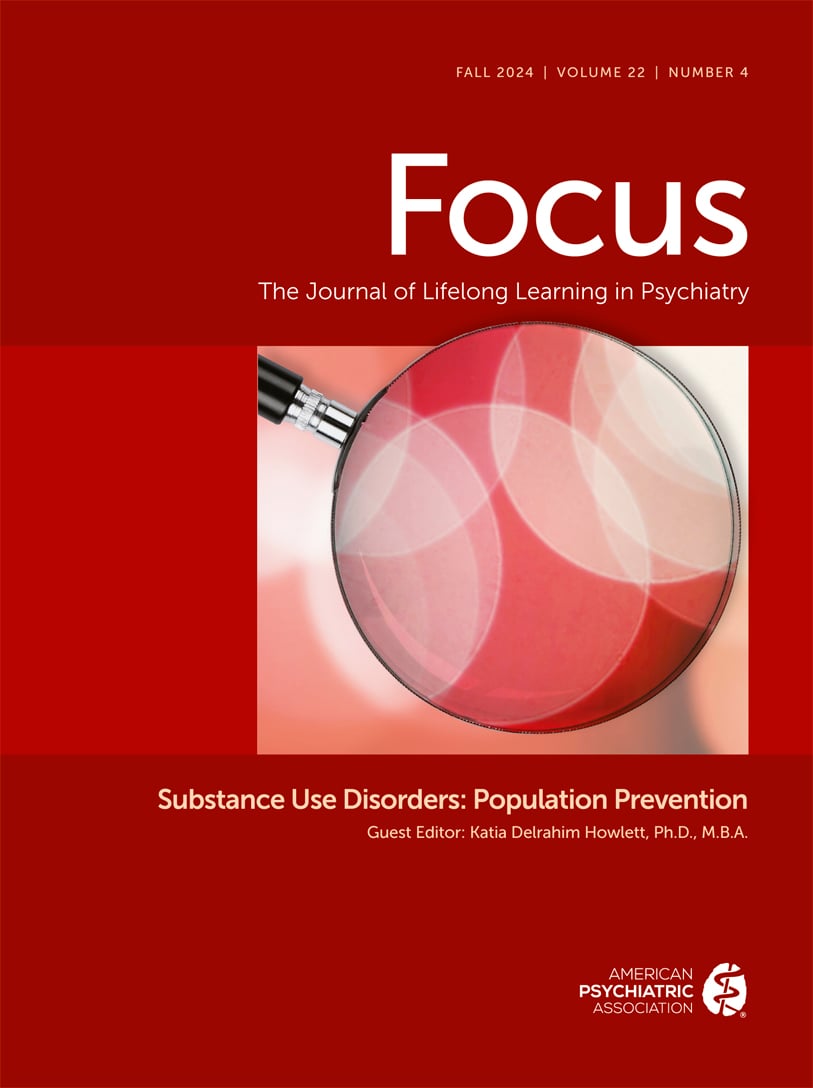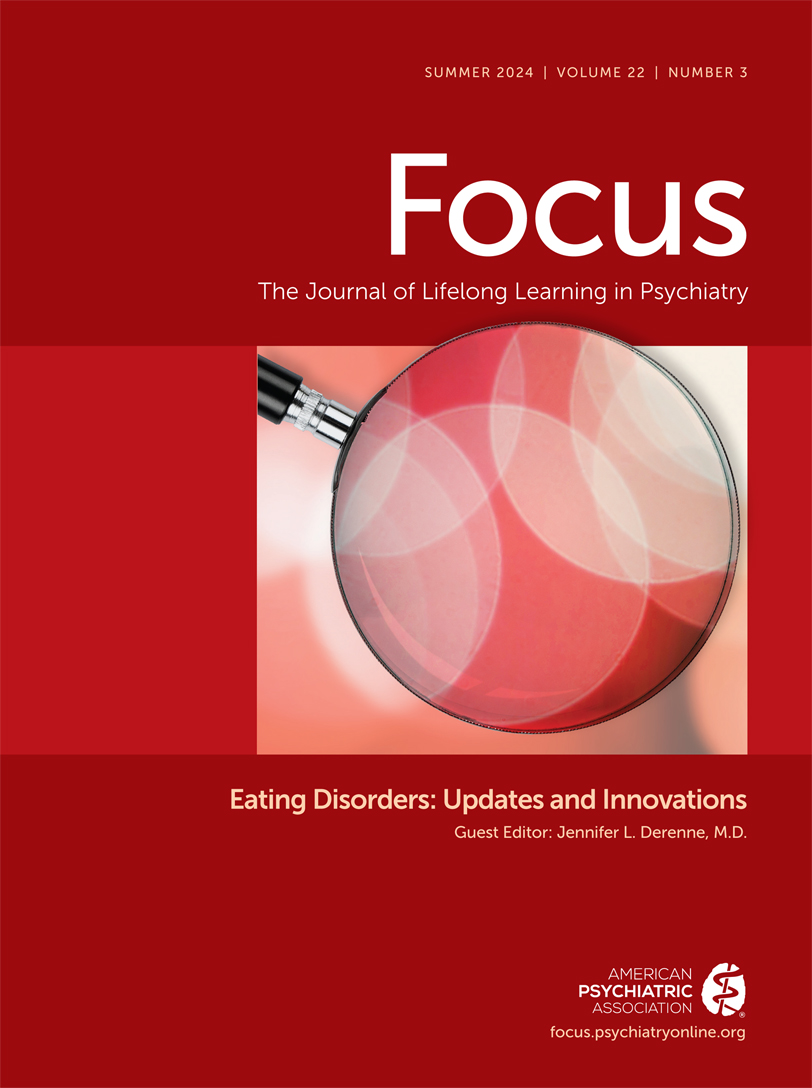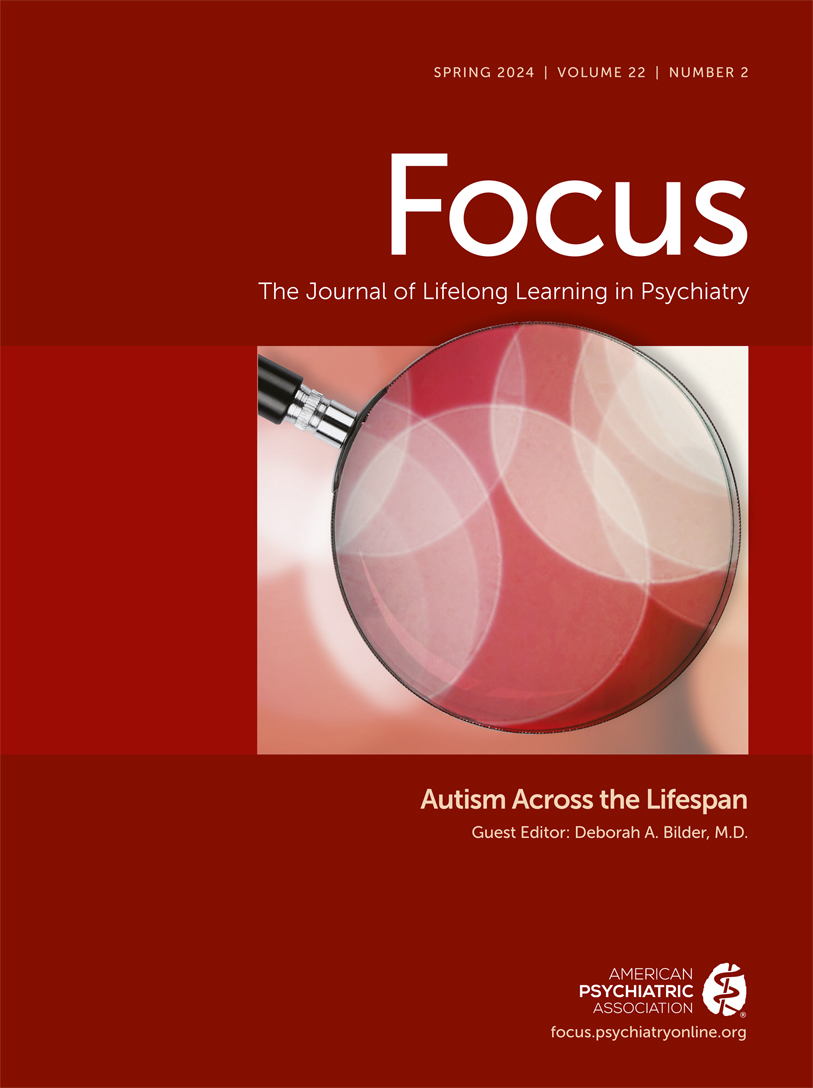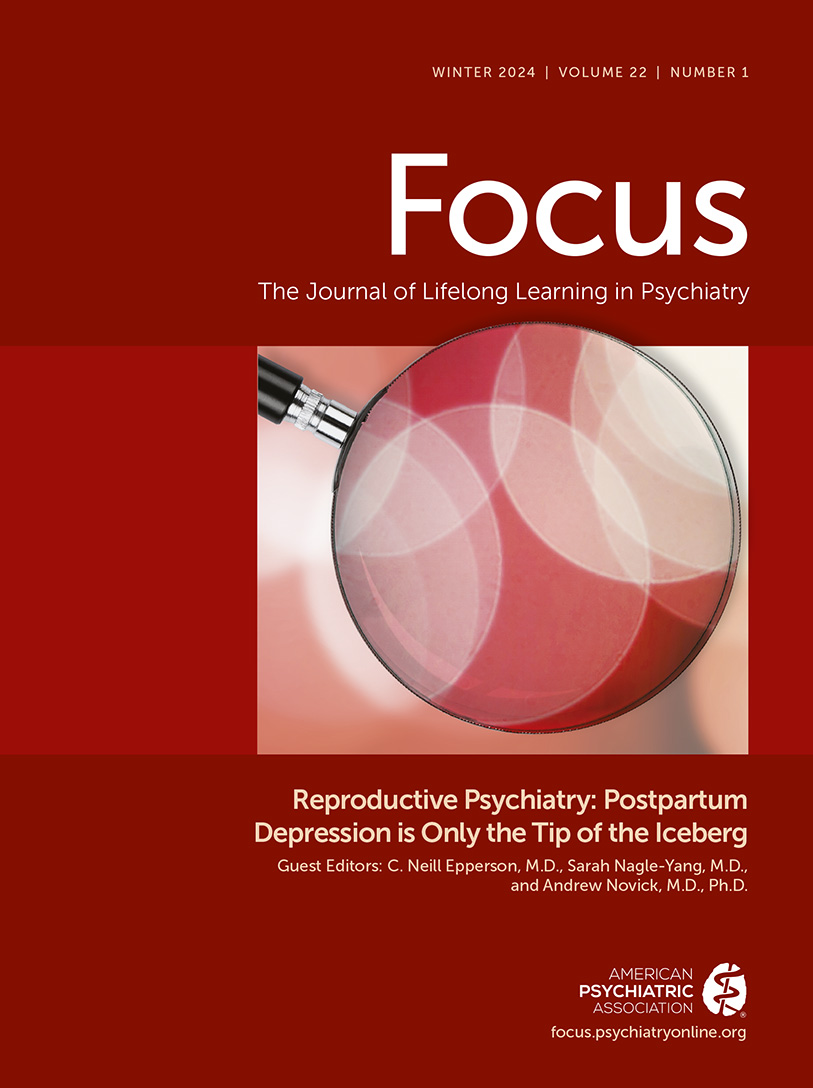Focus
- Volume 13
- Number 1
- January 2015
Clinical Synthesis
Publication date: 01 January 2015
Pages3–11Bipolar disorder is a heterogeneous, complex, multidimensional neuropsychiatric condition characterized by episodes of (hypo)mania and depression. The neurobiology of bipolar disorder is undoubtedly complicated, and much remains to be discovered regarding ...
https://doi.org/10.1176/appi.focus.130111Publication date: 01 January 2015
Pages12–18Medical comorbidities are overrepresented in individuals with bipolar disorder, including, but not limited to, cardiovascular conditions, autoimmune diseases, cancer, and metabolic disorders. Overweight/obesity, metabolic syndrome, and type 2 diabetes ...
https://doi.org/10.1176/appi.focus.130105Publication date: 01 January 2015
Pages19–24Since the initial description of bipolar disorder (BD), longitudinal observations suggested that episodes are more frequent as the disorder progressed. Staging models in BD consider that there is a subset of patients who present a more severe course of ...
https://doi.org/10.1176/appi.focus.130110Publication date: 01 January 2015
Pages25–36Treatment options for bipolar disorder have been primarily studied in adults. However, there is a growing body of research of these treatments in youths with bipolar disorder. Despite this there is still a huge gap in clinical trials performed on adults ...
https://doi.org/10.1176/appi.focus.130121Publication date: 01 January 2015
Pages37–46Even when treated with best-practice pharmacotherapy, many patients with bipolar disorder have slow recoveries from illness episodes, high rates of recurrence, and considerable functional impairment. This article reviews randomized trials of psychotherapy ...
https://doi.org/10.1176/appi.focus.130106Features
Publication date: 01 January 2015
Pages50–53This exercise is designed to test your comprehension of material presented in this issue of FOCUS as well as your ability to evaluate, diagnose, and manage clinical problems. Answer the questions below, to the best of your ability, on the information ...
https://doi.org/10.1176/appi.focus.130109Influential Publications
Publication date: 01 January 2015
Pages68–74Objective: This study examined the risk of antidepressant-induced manic switch in patients with bipolar disorder treated either with antidepressant monotherapy or with an antidepressant in conjunction with a mood stabilizer. Method: Using Swedish national ...
https://doi.org/10.1176/appi.focus.130117Publication date: 01 January 2015
Pages75–84Objective: This review aims to address concerns about the potential overinclusiveness and vagueness of bipolar spectrum concepts, and also, concerns about the overlap between bipolar illness and borderline personality. Method: Narrative review based on ...
https://doi.org/10.1176/appi.focus.130115Publication date: 01 January 2015
Pages85–93Objective: The study addressed whether a collaborative model for chronic care, described in part I (this issue), improves outcome for bipolar disorder. Methods: The intervention was designed to improve outcome by enhancing patient self-management skills with ...
https://doi.org/10.1176/appi.focus.130114Publication date: 01 January 2015
Pages94–101Objective: Lithium salts, once the mainstay of therapy for bipolar disorder, have tolerability issues at a higher dosage that often limit adherence. The authors investigated the comparative effectiveness of more tolerable dosages of lithium as part of ...
https://doi.org/10.1176/appi.focus.130116Publication date: 01 January 2015
Pages102–112Bipolar depression remains a major unresolved challenge for psychiatric therapeutics. It is associated with significant disability and mortality and represents the major proportion of the approximately half of follow-up time spent in morbid states despite ...
https://doi.org/10.1176/appi.focus.130119Publication date: 01 January 2015
Pages113–121Objective: Depression and brief periods of (hypo)mania are linked to an increased risk of progression to bipolar I or II disorder (BD) in children of bipolar parents. This randomized trial examined the effects of a 4-month family-focused therapy (FFT) ...
https://doi.org/10.1176/appi.focus.130118Past Issues
View Issues Archive
Vol. 22 | No. 4

Vol. 22 | No. 3

Vol. 22 | No. 2
